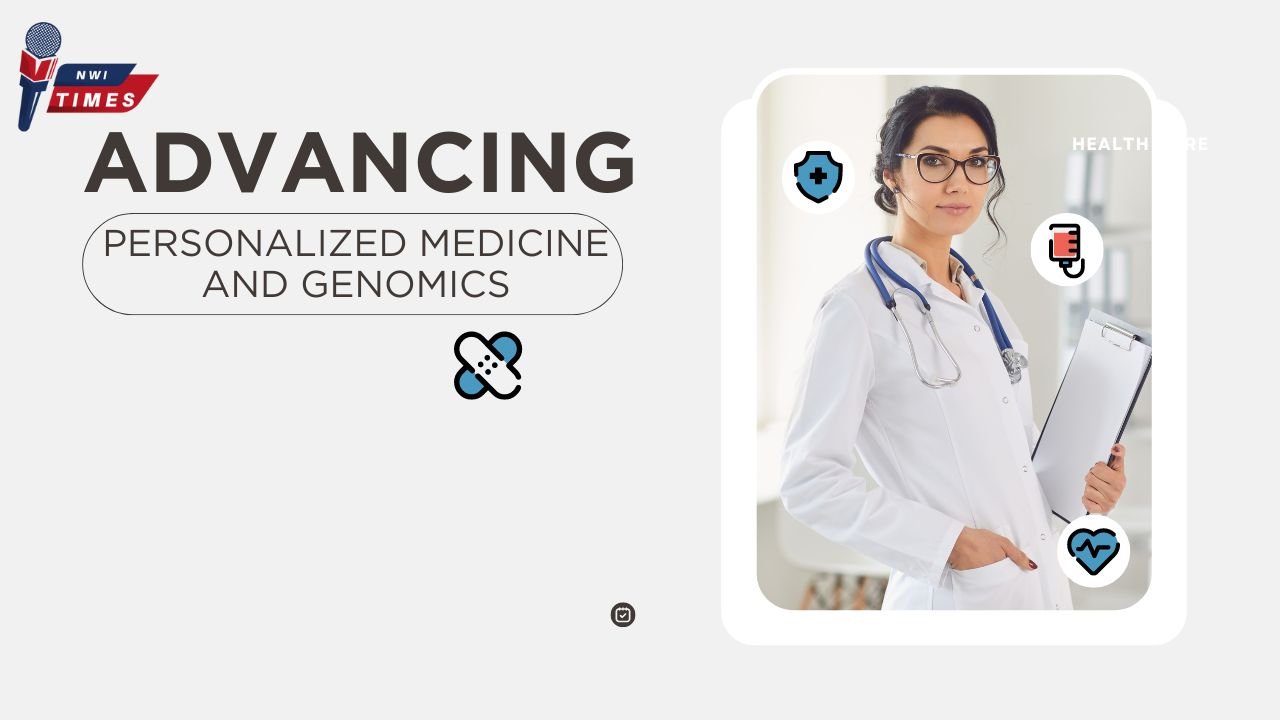Personalized medicine represents a major shift in how healthcare is delivered, focusing on tailoring medical care to the individual. Unlike traditional medicine, which often uses a one-size-fits-all approach, the advances in personalized medicine and genomics aim to customize treatments based on an individual’s genetic profile, lifestyle, and environment. This personalized approach helps doctors choose the most effective treatments with fewer side effects. For instance, by analyzing a patient’s genetic information, doctors can determine how they might respond to different medications, making treatments more precise and effective. Advances in personalized medicine and genomics have made it possible to design treatment plans that are uniquely suited to each patient.
What is Genomics and Why is it Important?
Genomics is the study of genes and their functions, focusing on the entire genome, which encompasses all the DNA in an organism. Understanding genomics is vital because it provides insights into how genetic variations can influence health and disease. Advances in personalized medicine and genomics have made it possible to identify genetic mutations that may increase the risk of diseases such as cancer. By understanding these mutations, researchers can develop targeted therapies that are more effective for individuals based on their genetic profiles. This personalized approach to medicine helps ensure that treatments are tailored to address the specific causes of diseases.
How Have Genetic Sequencing Technologies Improved?
Genetic sequencing technologies have seen remarkable improvements over the years. Early sequencing methods were time-consuming and expensive, but advances in personalized medicine and genomics have led to the development of next-generation sequencing (NGS). NGS technology allows for rapid and cost-effective sequencing of entire genomes, making it easier to conduct large-scale genetic studies. This advancement has provided researchers and doctors with an extensive array of genetic data, enabling them to identify genetic variations associated with various diseases more efficiently. The progress in genetic sequencing technologies has greatly enhanced the ability to use genomics in personalized medicine.
What are the Benefits of Personalized Medicine?
The benefits of personalized medicine are numerous and impactful. One significant advantage is the potential for more effective treatments. With the advances in personalized medicine and genomics, doctors can tailor therapies based on an individual’s genetic profile, leading to more precise and effective treatments. Another benefit is the ability to predict and prevent diseases. Genetic testing can identify individuals who are at higher risk for certain conditions, allowing for early interventions and preventive measures. Personalized medicine improves patient outcomes by providing targeted treatments that address the specific genetic factors underlying diseases.
What Challenges are Associated with Personalized Medicine?
Despite its many benefits, personalized medicine faces several challenges. One major challenge is the need for extensive and accurate genetic data. The advances in personalized medicine and genomics require sophisticated technology and expertise to collect and analyze this data. Another challenge is ensuring the privacy and security of genetic information. As more genetic data is collected, protecting this sensitive information becomes increasingly important. Ethical considerations also arise with personalized medicine, including issues related to consent and the potential for discrimination based on genetic information. Addressing these challenges is crucial for the continued success of personalized medicine.
How Does Personalized Medicine Impact Drug Development?
The impact of personalized medicine on drug development is profound. Traditionally, drug development involved testing new medications on a broad population to determine their effectiveness. With the advances in personalized medicine and genomics, the focus has shifted to understanding how different genetic profiles respond to medications. This shift allows for the development of targeted therapies that are tailored to specific genetic variations. Consequently, drug development becomes more efficient, with a higher likelihood of success in treating particular conditions. Personalized medicine helps identify potential side effects early in the development process, leading to safer and more effective drugs.
What Role Does Data Privacy Play in Personalized Medicine?
Data privacy is a crucial concern in the context of personalized medicine. The advances in personalized medicine and genomics generate vast amounts of sensitive genetic information, making it essential to protect this data. Policies and regulations are in place to safeguard genetic information, requiring informed consent from patients and ensuring secure storage. As the amount of genetic data grows, ongoing efforts are necessary to update and enforce privacy measures to prevent unauthorized access and misuse. Ensuring data privacy is fundamental to maintaining trust and the overall success of personalized medicine.
What Are the Future Prospects of Personalized Medicine?
The future prospects of personalized medicine are bright and full of potential. Continued advances in personalized medicine and genomics are expected to drive further progress in the field. Researchers are working on integrating genetic information with other data types, such as environmental and lifestyle factors, to create even more personalized treatment plans. New technologies and methods for analyzing genetic data will likely lead to more accurate and comprehensive insights into health and disease. As personalized medicine becomes more widespread, it has the potential to transform healthcare by providing more precise, effective, and individualized treatments.
Table: Benefits and Challenges of Personalized Medicine
| Benefits | Challenges |
| More Effective Treatments: Tailoring treatments to individual genetic profiles can increase effectiveness. | Need for Extensive Data: Collecting and analyzing genetic data requires sophisticated technology. |
| Predictive and Preventive Measures: Identifies individuals at higher risk for diseases, allowing for early intervention. | Privacy and Security Concerns: Ensuring the protection of sensitive genetic data is crucial. |
| Improved Patient Outcomes: Provides treatments designed to address specific genetic causes of diseases. | Ethical Considerations: Issues related to consent and potential discrimination need to be addressed. |
| Efficient Drug Development: Focuses on understanding how different genetic profiles respond to medications. |
Conclusion
Advances in personalized medicine and genomics have transformed the way we approach healthcare. By focusing on tailoring treatments to individual genetic profiles, personalized medicine offers the promise of more effective and targeted therapies. Genomics plays a crucial role in this process by providing valuable insights into the genetic factors influencing health and disease. Although there are challenges, such as data privacy and the need for extensive genetic information, the benefits of personalized medicine are substantial. The future of personalized medicine looks promising, with ongoing advancements expected to further enhance the precision and effectiveness of medical treatments.



